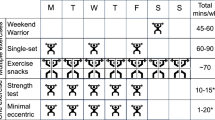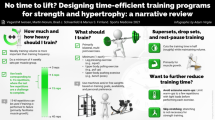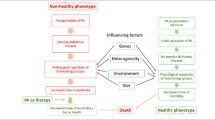Abstract
Breast cancer (BC) is the most prominent cancer amongst women, but fortunately, early diagnosis and advances in multimodality treatments have improved patient survivability. Cancer survivors, however, experience increased biological ageing which may accelerate other co-morbidities. Exercise intervention is a promising clinical adjuvant approach to improve BC patients’ physiological function, recovery from treatment, and quality of life. However, the effects of combined aerobic and strength exercise training on biological ageing in BC patients have not been studied. The Breast Cancer Exercise Intervention (BREXINT) Pilot Study will evaluate the effects of a 24-week combined aerobic and strength exercise intervention against usual care in 50 BC patients’ post-treatment randomised to either group. The primary outcomes include changes in cardiorespiratory fitness, muscle strength, cancer-related symptoms, and rate of biological ageing following exercise intervention period. The secondary outcomes include habitual physical activity measured with tri-axial accelerometery and supporting questionnaires, including physical activity, food diary, and quality of life questionnaires. This study will identify the effects of combined aerobic exercise strength training on biological ageing in BC patients from Singapore. Results from this study could further support the implementation of regular exercise programmes as routine care for cancer patients.

Similar content being viewed by others
References
Health Promotion Board, Singapore. Singapore Cancer Registry Annual Report 2020. Available at: https://nrdo.gov.sg/docs/librariesprovider3/default-document-library/scr-2020-annual-report_web-release.pdf. Accessed 19 Dec 2023.
Epidemiology & Disease Control Division, Ministry of Health, Singapore; Institute for Health Metrics and Evaluation. The Burden of Disease in Singapore, 1990–2017: an overview of the Global Burden of Disease Study 2017 results. Seattle, WA: IHME; 2019.
Botteri E, et al. Improved prognosis of young patients with breast cancer undergoing breast-conserving surgery. Br J Surg. 2017;104(13):1802–10.
Litton JK, Burstein HJ, Turner NC. Molecular testing in breast cancer. Am Soc Clin Oncol Educ Book. 2019;39:e1–7.
Bhatia R, et al. Do cancer and cancer treatments accelerate aging? Curr Oncol Rep. 2022;24(11):1401–12.
Moo TA, et al. Overview of breast cancer therapy. PET Clin. 2018;13(3):339–54.
Park M, et al. Breast cancer metastasis: mechanisms and therapeutic implications. Int J Mol Sci. 2022;23(12):6806.
Bodai BI, Tuso P. Breast cancer survivorship: a comprehensive review of long-term medical issues and lifestyle recommendations. Perm J. 2015;19(2):48–79.
Ewertz M, Jensen AB. Late effects of breast cancer treatment and potentials for rehabilitation. Acta Oncol. 2011;50(2):187–93.
Giordano SH, et al. Congestive heart failure (CHF) in older women treated with anthracycline (A) chemotherapy (C). J Clin Oncol. 2006;24(18_suppl):521–521.
Maginador G, et al. Aerobic exercise-induced changes in cardiorespiratory fitness in breast cancer patients receiving chemotherapy: a systematic review and meta-analysis. Cancers (Basel). 2020;12(8):2240.
Möhl A, et al. The impact of cardiovascular disease on all-cause and cancer mortality: results from a 16-year follow-up of a German breast cancer case–control study. Breast Cancer Res. 2023;25(1):89.
Chen L-K, et al. Asian Working Group for Sarcopenia: 2019 Consensus Update on Sarcopenia Diagnosis and Treatment. J Am Med Dir Assoc. 2020;21(3):300-307.e2.
Morlino D, et al. Prevalence of sarcopenia in women with breast cancer. Nutrients. 2022;14(9):1839.
Maltoni R, et al. Chronological age or biological age: what drives the choice of adjuvant treatment in elderly breast cancer patients? Translational Oncology. 2022;15(1): 101300.
Carroll JE, Bower JE, Ganz PA. Cancer-related accelerated ageing and biobehavioural modifiers: a framework for research and clinical care. Nat Rev Clin Oncol. 2022;19(3):173–87.
Niccoli T, Partridge L. Ageing as a risk factor for disease. Curr Biol. 2012;22(17):R741–52.
Henderson TO, Ness KK, Cohen HJ. Accelerated aging among cancer survivors: from pediatrics to geriatrics. Am Soc Clin Oncol Educ Book. 2014;34:e423–30.
Bhakta N, et al. The cumulative burden of surviving childhood cancer: an initial report from the St Jude Lifetime Cohort Study (SJLIFE). Lancet. 2017;390(10112):2569–82.
López-Otín C, et al. Meta-hallmarks of aging and cancer. Cell Metab. 2023;35(1):12–35.
Dieli-Conwright CM, et al. Aerobic and resistance exercise improves physical fitness, bone health, and quality of life in overweight and obese breast cancer survivors: a randomized controlled trial. Breast Cancer Res. 2018;20(1):124.
Odynets T, Briskin Y, Todorova V. Effects of different exercise interventions on quality of life in breast cancer patients: a randomized controlled trial. Integr Cancer Ther. 2019;18:1534735419880598.
Poier D, et al. Influence of a multimodal and multimodal-aerobic therapy concept on health-related quality of life in breast cancer survivors. Integr Cancer Ther. 2019;18:1534735418820447.
Jones LW, et al. Cardiopulmonary function and age-related decline across the breast cancer survivorship continuum. J Clin Oncol. 2012;30(20):2530–7.
Klassen O, et al. Cardiorespiratory fitness in breast cancer patients undergoing adjuvant therapy. Acta Oncol. 2014;53(10):1356–65.
Zaorsky NG, et al. Exercise therapy and radiation therapy for cancer: a systematic review. Int J Radiat Oncol Biol Phys. 2021;110(4):973–83.
Holmes MD, et al. Physical activity and survival after breast cancer diagnosis. JAMA. 2005;293(20):2479–86.
Holick CN, et al. Physical activity and survival after diagnosis of invasive breast cancer. Cancer Epidemiol Biomarkers Prev. 2008;17(2):379–86.
Tsuji K, Matsuoka YJ, Ochi E. High-intensity interval training in breast cancer survivors: a systematic review. BMC Cancer. 2021;21(1):184.
Zhang XM, et al. Sarcopenia as a predictor of mortality in women with breast cancer: a meta-analysis and systematic review. BMC Cancer. 2020;20(1):172.
Goodpaster BH, et al. Subcutaneous abdominal fat and thigh muscle composition predict insulin sensitivity independently of visceral fat. Diabetes. 1997;46(10):1579–85.
Kalinkovich A, Livshits G. Sarcopenic obesity or obese sarcopenia: a cross talk between age-associated adipose tissue and skeletal muscle inflammation as a main mechanism of the pathogenesis. Ageing Res Rev. 2017;35:200–21.
Zhang X, et al. Can exercise-induced modulation of the tumor physiologic microenvironment improve antitumor immunity? Cancer Res. 2019;79(10):2447–56.
Wilson D, et al. Frailty and sarcopenia: the potential role of an aged immune system. Ageing Res Rev. 2017;36:1–10.
Iwase T, et al. Body composition and breast cancer risk and treatment: mechanisms and impact. Breast Cancer Res Treat. 2021;186(2):273–83.
Meneses-Echávez JF, et al. The effect of exercise training on mediators of inflammation in breast cancer survivors: a systematic review with meta-analysis. Cancer Epidemiol Biomarkers Prev. 2016;25(7):1009–17.
Khosravi N, et al. Exercise training, circulating cytokine levels and immune function in cancer survivors: a meta-analysis. Brain Behav Immun. 2019;81:92–104.
Mijwel S, et al. High-intensity exercise during chemotherapy induces beneficial effects 12 months into breast cancer survivorship. J Cancer Surviv. 2019;13(2):244–56.
Milne HM, et al. Effects of a combined aerobic and resistance exercise program in breast cancer survivors: a randomized controlled trial. Breast Cancer Res Treat. 2008;108(2):279–88.
Muhandiramge J, et al. The acceleration of ageing in older patients with cancer. J Geriatr Oncol. 2021;12(3):343–51.
Mandelblatt JS, et al. Cognitive effects of cancer and its treatments at the intersection of aging: what do we know; what do we need to know? Semin Oncol. 2013;40(6):709–25.
Englund DA, et al. Exercise reduces circulating biomarkers of cellular senescence in humans. Aging Cell. 2021;20(7): e13415.
Rock CL, et al. Nutrition and physical activity guidelines for cancer survivors. CA Cancer J Clin. 2012;62(4):243–74.
Nyrop KA, et al. Randomized controlled trial of a home-based walking program to reduce moderate to severe aromatase inhibitor-associated arthralgia in breast cancer survivors. Oncologist. 2017;22(10):1238–49.
Cormie P, et al. Exercise as part of routine cancer care. Lancet Oncol. 2018;19(9): e432.
Schmitz KH, et al. Exercise is medicine in oncology: engaging clinicians to help patients move through cancer. CA Cancer J Clin. 2019;69(6):468–84.
Alfano CM, Cheville AL, Mustian K. Developing high-quality cancer rehabilitation programs: a timely need. Am Soc Clin Oncol Educ Book. 2016;35:241–9.
Loh KW, et al. Cancer supportive and survivorship care in singapore: current challenges and future outlook. J Glob Oncol. 2018;4:1–8.
Levine ME, et al. An epigenetic biomarker of aging for lifespan and healthspan. Aging (Albany NY). 2018;10(4):573–91.
Lu AT, et al. DNA methylation GrimAge strongly predicts lifespan and healthspan. Aging (Albany NY). 2019;11(2):303–27.
Burnett D, et al. Cardiorespiratory fitness in breast cancer survivors. Springerplus. 2013;2(1):68.
Luo N, et al. The European Organization for Research and Treatment of Cancer Quality of Life Questionnaire (EORTC QLQ-C30): Validation of English version in Singapore. Qual Life Res. 2005;14(4):1181–6.
Rogers LQ, et al. Effects of a physical activity behavior change intervention on inflammation and related health outcomes in breast cancer survivors: pilot randomized trial. Integr Cancer Ther. 2013;12(4):323–35.
Puterman E, et al. Aerobic exercise lengthens telomeres and reduces stress in family caregivers: a randomized controlled trial - Curt Richter Award Paper 2018. Psychoneuroendocrinology. 2018;98:245–52.
Schaffer K, et al. Systematic review of randomized controlled trials of exercise interventions using digital activity trackers in patients with cancer. J Natl Compr Canc Netw. 2019;17(1):57–63.
Funding
The BREXINT Pilot Study is supported by grants from the NUS Yong Loo Lin School of Medicine, Healthy Longevity Translational Research Program (HLTRP/2022/PS-03), and National Cancer Centre Research Fund (NCCRF-YR2019-JUL-PG4).
Author information
Authors and Affiliations
Corresponding authors
Ethics declarations
Conflict of interest
The authors declare no competing interests.
Additional information
Publisher's Note
Springer Nature remains neutral with regard to jurisdictional claims in published maps and institutional affiliations.
Supplementary Information
Below is the link to the electronic supplementary material.
About this article
Cite this article
Sitjar, P.H.S., Tan, S.Y., Wong, M. et al. Combined aerobic and strength exercise training on biological ageing in Singaporean breast cancer patients: protocol for the Breast Cancer Exercise Intervention (BREXINT) Pilot Study. GeroScience (2024). https://doi.org/10.1007/s11357-024-01145-9
Received:
Accepted:
Published:
DOI: https://doi.org/10.1007/s11357-024-01145-9




